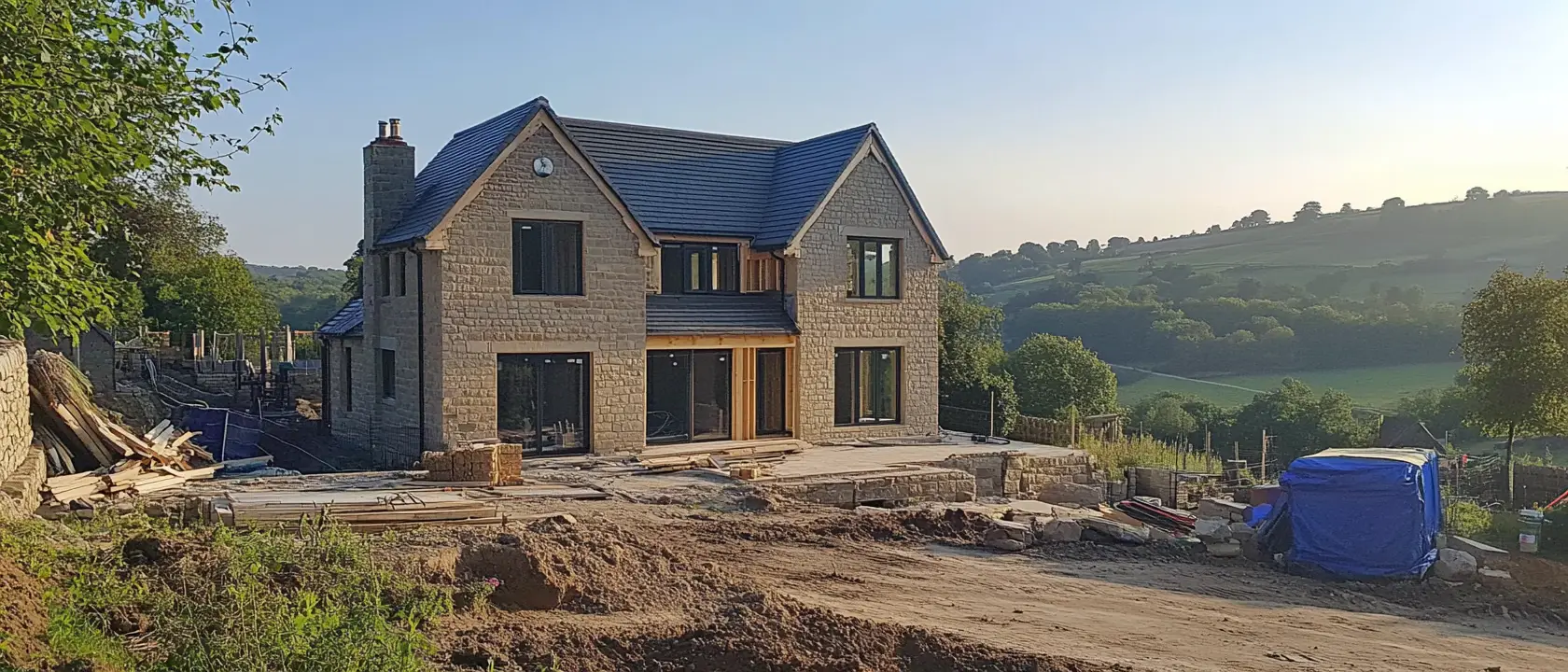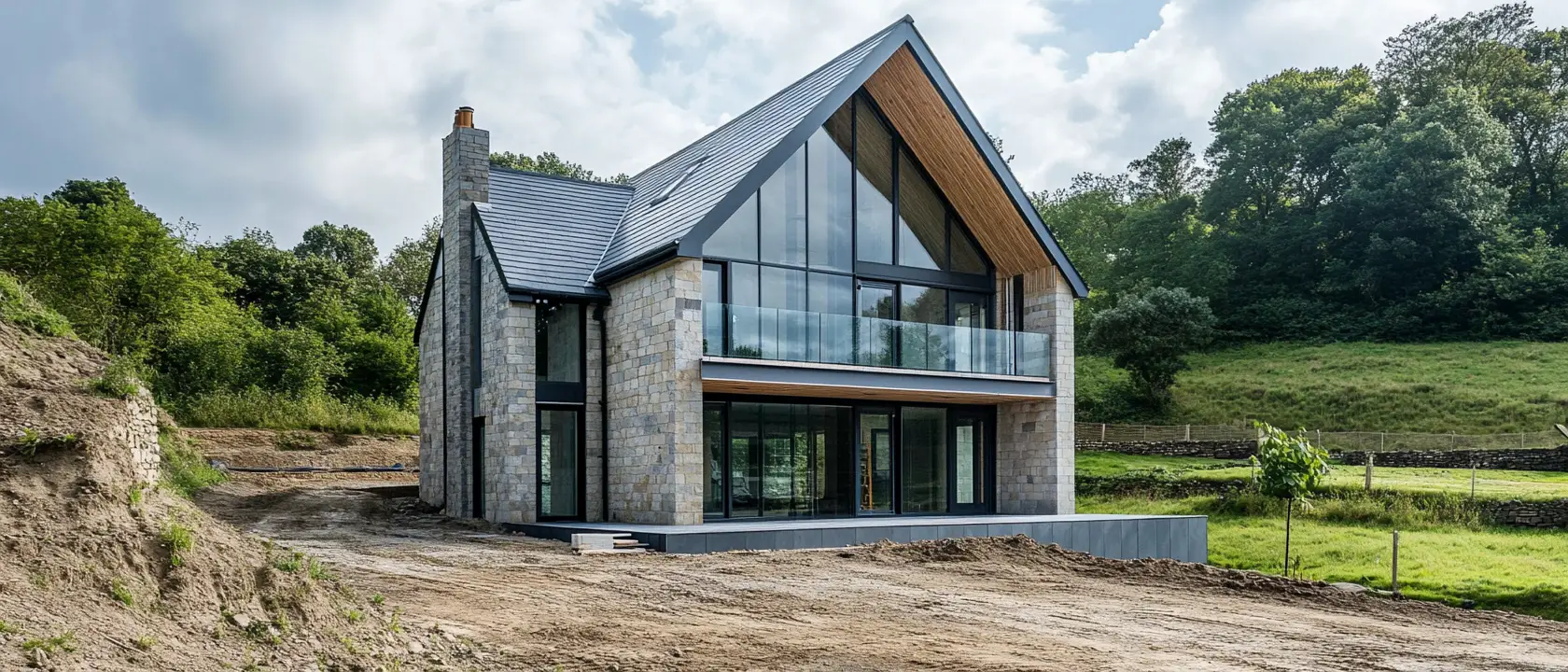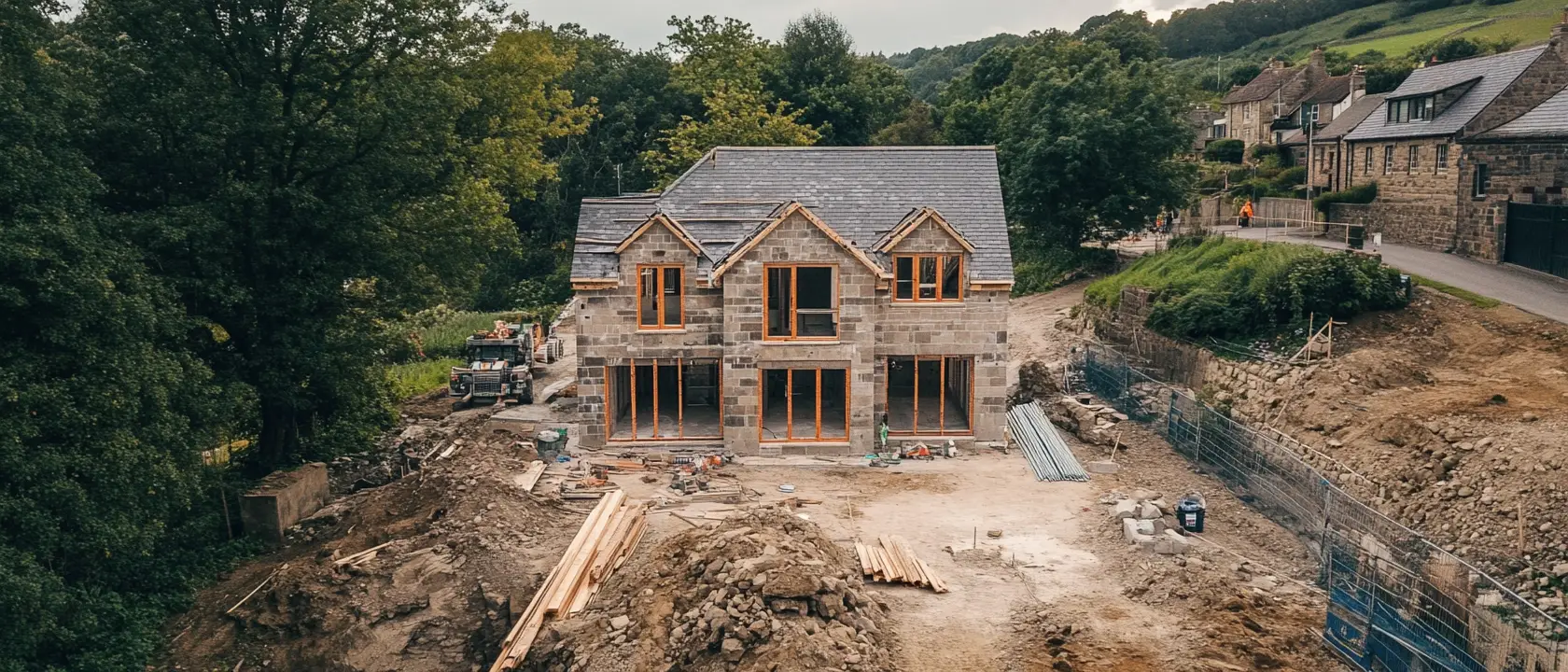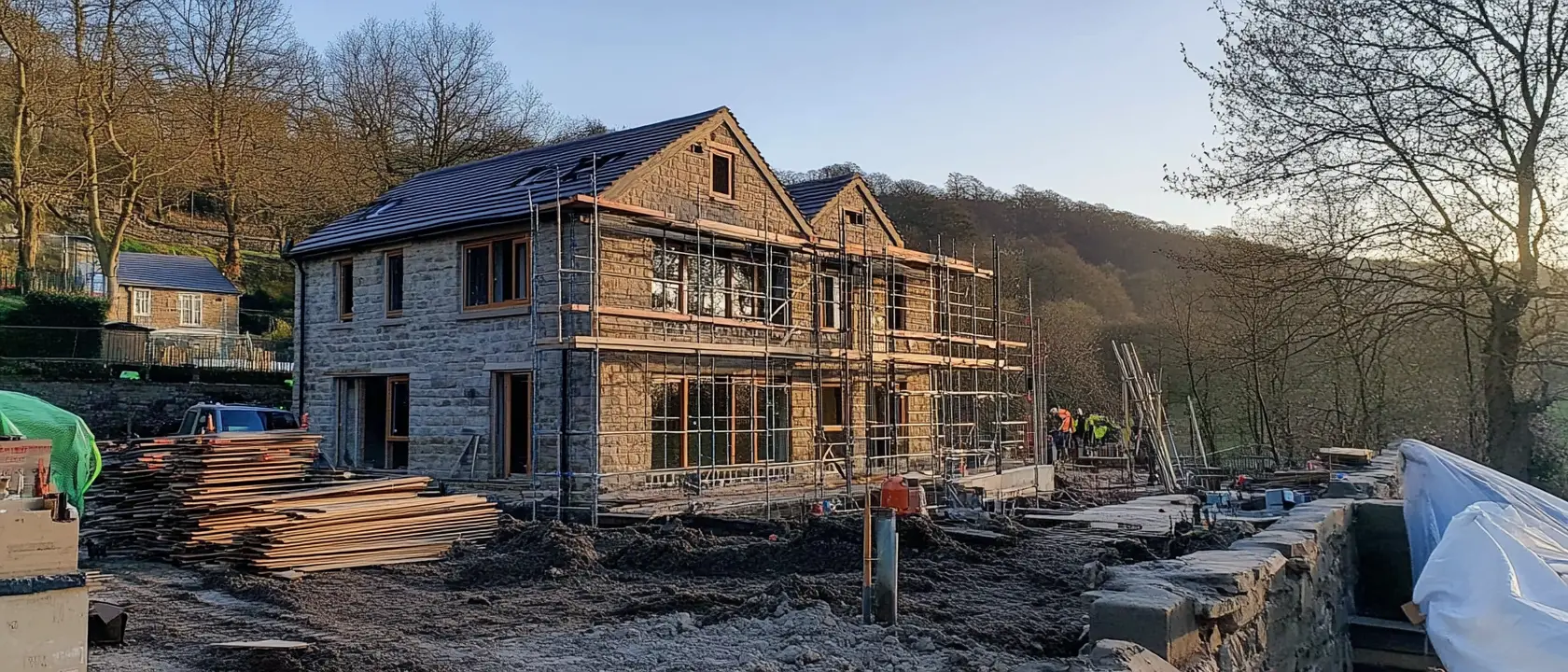Building your own home is a dream for many. From designing the perfect layout to selecting every fixture, you get full control over your living space. However, building a home from the ground up is also a significant financial undertaking. Choosing the right mortgage, working with professional builders, and ensuring you have adequate home insurance are all critical steps in making your self-build project a success.
In this guide, we’ll take you through the key considerations when financing and building your own home.

1. Understanding Self-Build Mortgages
If you’re planning to build your own home, you’ll need a self-build mortgage rather than a traditional residential mortgage. Unlike standard mortgages, where the loan is provided in one lump sum, a self-build mortgage is released in stages to coincide with the different phases of construction.
Types of Self-Build Mortgages:
- Arrears Stage Payment Mortgage: The mortgage lender releases funds after each stage of the build is completed. You’ll need to fund the early stages of the project yourself or have savings in place for initial costs such as buying land.
- Advance Stage Payment Mortgage: The lender releases funds at the beginning of each construction stage, which can help ease cash flow and make payments to builders and suppliers easier.
Key Stages of a Self-Build Mortgage:
- Land Purchase: The first release of funds is often to purchase the land.
- Foundation Stage: Once the foundation is laid, the next portion of the loan is released.
- Walls and Roof: Further payments are made as the structure of the house takes shape.
- First Fix: At this stage, the home is weather-tight, with roof and windows installed.
- Completion: The final release of funds happens once the build is fully completed.
2. Working with a Professional Builder
While it may be tempting to cut costs by taking on some aspects of the build yourself, working with a professional builder ensures that your project stays on track, complies with building regulations, and is completed to a high standard.
Benefits of Hiring a Professional Builder:
- Expertise and Experience: Professional builders understand the complexities of construction, including regulations and the technical requirements of the build.
- Project Management: Builders can oversee the entire project, from sourcing materials to ensuring the job is done on time.
- Building Warranty: A professional builder will often provide a warranty or guarantee on the work, giving you peace of mind. Lenders may also require you to hire a certified builder to qualify for a self-build mortgage.
Choosing the Right Builder:
- Look for builders who are registered with recognised trade bodies such as the Federation of Master Builders (FMB) or the National Federation of Builders (NFB).
- Ask for references and visit completed projects to assess the quality of their work.
- Ensure your builder has relevant insurance, including public liability and professional indemnity cover.
3. Getting the Right Mortgage Advice
When considering a self-build mortgage, it’s essential to seek professional mortgage advice from a broker or financial adviser with experience in self-build projects. Here are a few reasons why expert advice is crucial:
- Specialist Products: Self-build mortgages are more complex than traditional mortgages, and not all lenders offer them. A broker can help you find lenders that specialise in self-build financing and guide you through their specific requirements.
- Cash Flow Management: Since self-build mortgages are released in stages, your broker can advise on managing cash flow and ensuring you have funds available for each phase of the build.
- Repayment Options: With self-build mortgages, you’ll typically only pay interest on the funds released during construction. After the build is complete, your mortgage will likely convert into a standard repayment mortgage. An adviser can help ensure you’re comfortable with both the interest-only and repayment phases.
4. Home Insurance for a Self-Build Project
Home insurance for a self-build project is different from a standard home insurance policy. As the property is under construction, there are more risks involved, and you’ll need to ensure you have the right cover in place from the outset.
Types of Insurance to Consider:
- Self-Build Insurance: This provides cover for the build itself, protecting against damage, theft, and accidents on-site. It also includes public liability insurance, which is essential in case anyone is injured on your site.
- Site Insurance: This covers the land and the construction materials from damage or theft.
- Structural Warranty: Once your home is completed, you’ll need a structural warranty (often for 10 years), which covers any major defects in the structure of the building. This warranty is essential as many lenders require it before they finalise the self-build mortgage.
Insurance at Each Stage of the Build:
- Before the Build: Ensure you have site insurance in place to cover the land and materials.
- During the Build: Self-build insurance covers accidents and incidents during construction. If you’re living on-site, ensure your personal belongings are covered too.
- After Completion: Once the build is complete, you’ll need to switch to standard home insurance, covering the structure and contents of the home.
5. Budgeting for Contingencies
Building your own home often comes with unexpected costs. It’s essential to budget for contingencies, as construction delays, price increases for materials, or unforeseen complications can quickly eat into your funds. A general rule is to set aside at least 10-15% of your total budget as a contingency fund to cover these unexpected expenses.
A mortgage broker or financial adviser can help you plan your finances more effectively, ensuring that you have the right level of borrowing and a clear understanding of your mortgage payments at each stage.

Final Thoughts: Building Your Own Home
Building your dream home is an exciting journey, but it requires careful planning, the right mortgage product, and professional guidance to ensure success. By working with a professional builder, getting tailored mortgage advice, and securing the correct insurance, you can turn your vision into reality while protecting your investment.
If you’re considering a self-build project, take the time to explore your mortgage options, hire a trusted builder, and safeguard your home with the appropriate insurance. With the right team behind you, you’ll be well on your way to creating a home that’s truly your own.

FAQ: Mortgaging and Building Your Own Home
A self-build mortgage is a specialised loan for individuals who want to build their own home. Unlike traditional mortgages, the funds are released in stages as the construction progresses.
In a self-build mortgage, the funds are released in instalments at key stages of the build (e.g., foundation, roof, completion), whereas a standard mortgage releases the full loan amount at once for a completed property.
Yes, many lenders require you to use a professional, certified builder to qualify for a self-build mortgage. A professional builder ensures the construction meets quality and safety standards, and they often provide a warranty for their work.
You’ll need self-build insurance, which covers site damage, theft, and liability during construction. Once the build is complete, you should switch to standard home insurance to cover the property and its contents.
During the build, you’ll likely only pay interest on the funds that have been released. Once the project is complete, your mortgage will switch to a standard repayment model where you pay both capital and interest.





